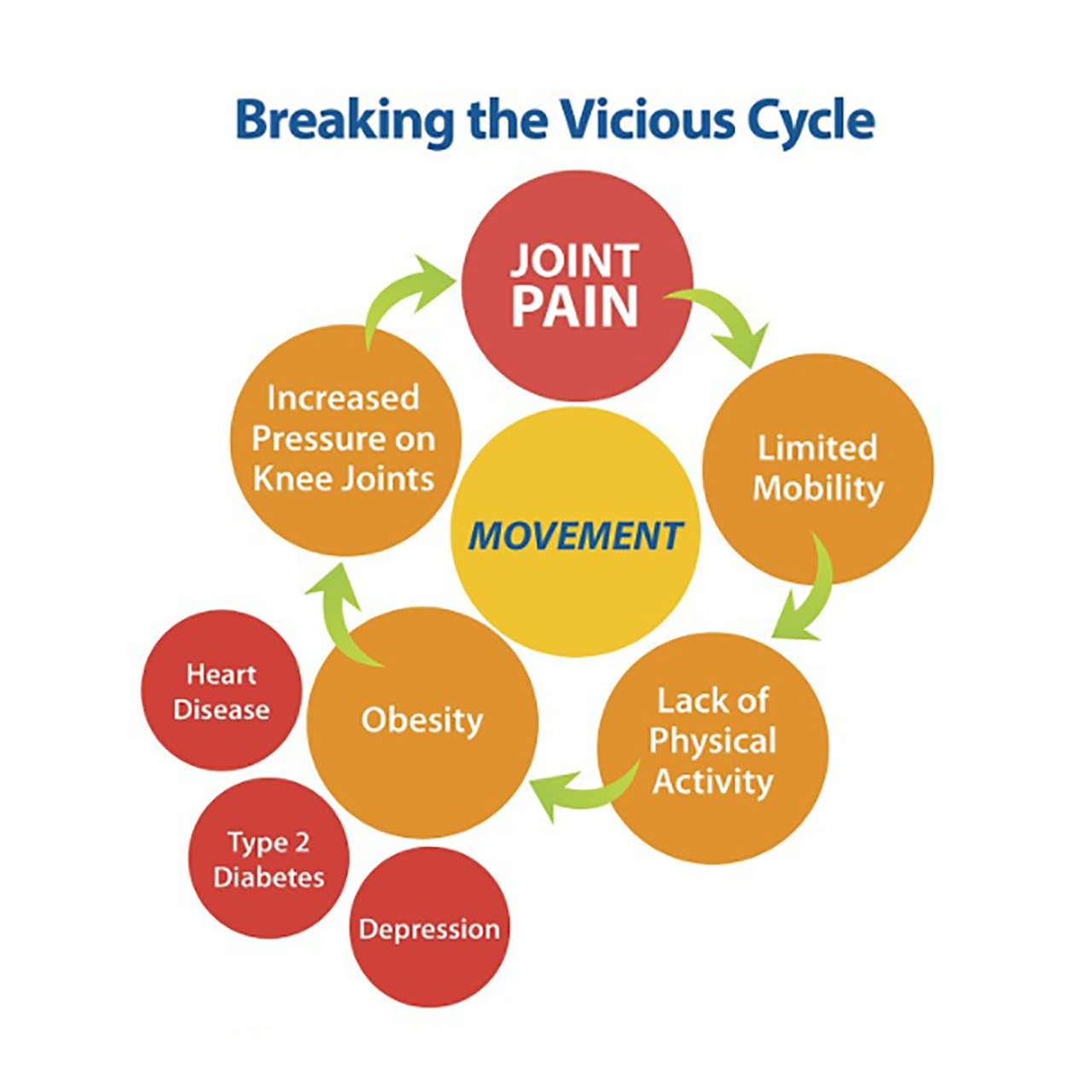The Pain Paradox – How Pain Can Affect our Identity
Joint pain can change our identity; interfering with our plans, goals, and the person we want to be. And, many times, it’s lived with in silence.
Joint pain can change our identity; interfering with our plans, goals, and the person we want to be. And, many times, it’s lived with in silence.
For many of us, pain is paradoxical. It's real, but invisible and can be very tough to deal with. It can make us feel incredibly alone and isolated, even though there are millions of other people living with chronic pain, too. In fact, it’s estimated that 50 million Americans suffer from chronic pain and of those, nearly 20 million state that the pain interferes with their daily life.4
Many people living with chronic pain struggle with a sense of shame, believing that their symptoms are somehow a sign of weakness or a failure on their part. While this isn't true, it's not always easy to do away with years of cultural stigma and collective ideas about what pain means and who "should" or "shouldn't" have it.
In reality, our perceptions and beliefs—how we think about pain—can have a dramatic impact on the type, intensity, and duration of our pain experience.1
Pain can interfere with our plans, goals, and ambitions. It can affect our finances, careers, emotional well-being, independence, families, ability to do the things we love, and even our sleep. Pain can challenge our self-identity, and trigger feelings of shame, guilt, or embarrassment. Because of pain, we often feel like we are limited in who we are, who we want to be, and who we think we SHOULD be.
Many people with chronic pain also find themselves feeling stuck in a vicious cycle:
1. Their pain makes it difficult to move.7
2. Due to their pain, they move around less and become more sedentary.7
3. Sedentary activity can actually make pain worse and lead to muscle weakness, poor balance, and other issues that make moving even more difficult, so their activity level plummets even more.2,7

Hence, many people feel like they’re stuck in a vicious cycle. For deeper information on this cycle, visit www.movementislifecaucus.com or www.startmovingstartliving.com.
It’s easy to feel overwhelmed by all the ways pain can affect our life. Some people find it helpful to visit a mental health counselor.5 There's truly no shame in seeking help for something that affects so many areas of your life, and ignoring or repressing a problem won't make it go away. Today, talking to a mental health professional is easier than ever and can be done in your own home. Reportedly, some patients with chronic pain choose to find help in many ways, including:6
1. Internet searching for counselors, pain management specialists, and mental health professionals in their area.
2. Asking their doctor(s) for suggestions
3. Asking friends or family for suggestions (you might be surprised how many people you know get regular counseling)
4. Seeking church or religious counseling services
5. Trying an online counseling service
6. Asking their insurance company for covered providers in your area
Pain is information that your brain and body ultimately use to protect you and prompt you to take action. But, sometimes we can misunderstand the message that our pain is trying to tell us.3
For instance, for people who have been dealing with symptoms for months or years, pain can become like an "echo" or oversensitive alarm… as if your nervous system has "turned up the volume" on pain signals even after the original injury has healed.3
This doesn't mean the pain isn't real. Pain IS real. But, reportedly, there are things you may be able to do to help you cope with your pain. In fact, a couple studies show that learning about pain can help decrease it, and inspire you to adopt useful strategies like activity pacing to help you manage pain more effectively.3,8
It may be helpful to learn to see pain for what it is—a message. The question becomes, what’s this pain trying to communicate to you? This can be difficult to figure out on your own, so it’s a good idea to consult with a professional—doctor, orthopedic surgeon, physical therapist, mental health counselor, etc.—to help you gain some clarity.
You’re not alone in your pain. While it's true that nobody has your body and therefore nobody has your exact experience, millions of people can relate to what you're going through. It takes strength to live with pain. It takes courage to face each day and activity. Give yourself some credit that what you’re going through is extremely difficult.
You may find comfort in reaching out and talking about your pain; in doing so, you may be surprised to learn that others are also experiencing pain and can provide support and helpful insights. You never know when speaking up about your own pain will help someone feel inspired and brave enough to do the same.